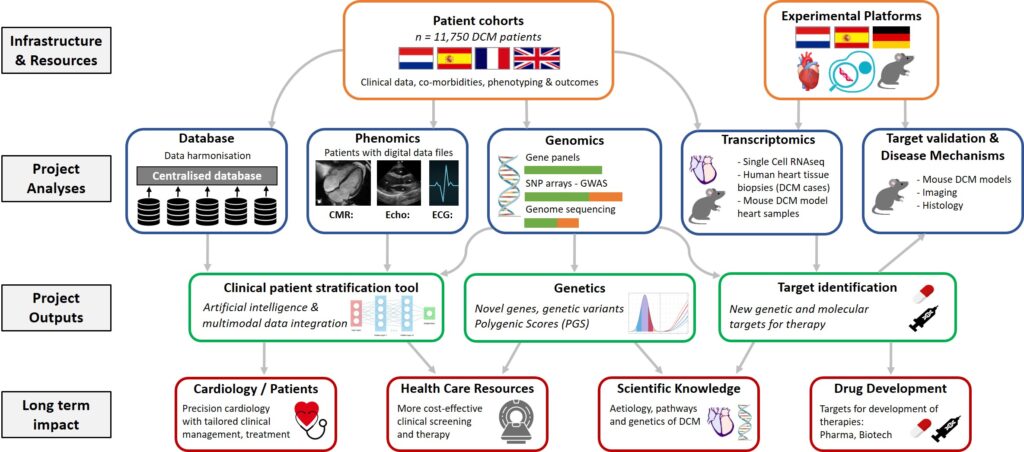Dilated Cardiomyopathy (DCM) is a heart muscle disease characterized by thinning and stretching of the chambers of the heart (ventricles), which grow larger, making it harder for the heart to pump blood. It is one of the most common cardiomyopathies, with a predicted incidence of at least 1 in 500, with over 30 million patients globally and almost 2 million in the EU.
DCM is a debilitating and potentially fatal disease with limited treatment options. It predominantly affects younger adults and has very poor outcomes, with three-year treated mortality rates of 12% to 20% typically resulting from heart failure or ventricular arrhythmia manifesting as sudden cardiac death. DCM is the most common indication for cardiac transplantation.
The current disease burden in DCM is largely attributable to two important gaps in scientific knowledge: Firstly, our understanding of the aetiology and genetic architecture of DCM remains incomplete. Secondly, there are limited therapeutic options for DCM patients. No curative treatments exist, apart from invasive heart transplantation and there are no approved therapies targeting underlying molecular disease mechanisms.
A fuller understanding of the genetic architecture of DCM is critically needed to provide solutions for these unmet medical needs.

